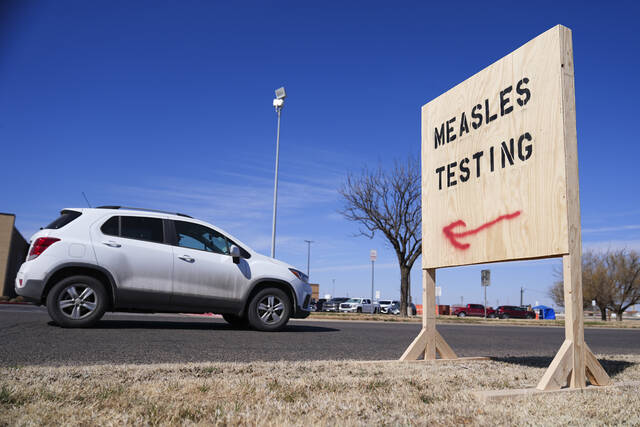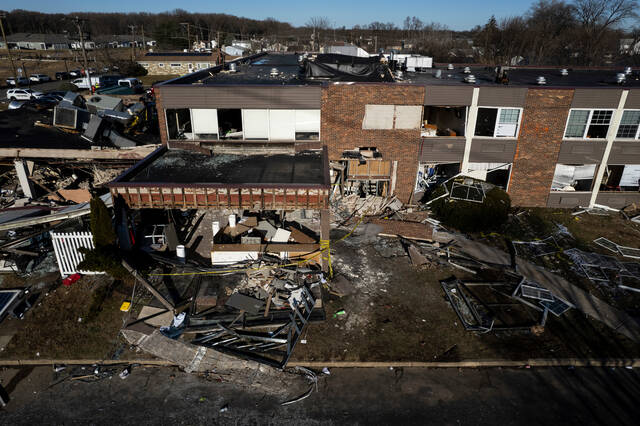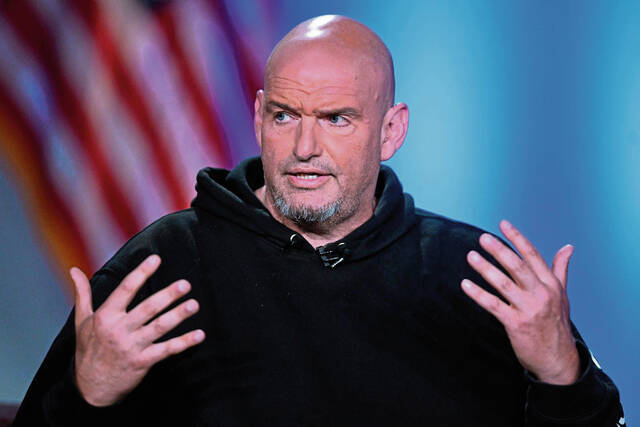A child’s death from a measles outbreak in West Texas has raised concerns about vaccination rates and the resurgence of preventable diseases.
But about one in 1,000 cases of measles can be deadly or cause lasting harm, said Dr. Paul Offit, the Maurice R. Hilleman Chair of Vaccinology at the University of Pennsylvania’s Perelman School of Medicine.
Offit is also director of the vaccine education center and professor of pediatrics in the Division of Infectious Diseases at Children’s Hospital of Philadelphia. He lived through a 1991 outbreak of the disease in Philadelphia that killed nine people in three months.
Regarding the outbreak in West Texas, Offit said, “It is unconscionable that we had a death of a school-age child.”
Since 2000, measles has been considered to be eliminated as a public health problem because new cases were found only when people traveled abroad and contracted the disease.
In the West Texas outbreak, the cases have centered around Gaines County, an area with a Mennonite population that historically has lower vaccination rates, the New York Times reported.
The 1991 outbreak was centered around two religious communities that do not vaccinate, Offit said.
“We’ve had an erosion in vaccine rates in this country,” he said. “When immunization rates sink, measles comes back.”
What is measles?
Measles used to be a rite of passage along the lines of other childhood diseases like chickenpox, smallpox, mumps and whooping cough.
It’s a respiratory illness marked by fever, cough and a rash all over the body. More severe cases cause pneumonia, ear infections and, in rare instances, encephalitis and death, according to Dr. Michael Petrosky of Allegheny Health Network Pediatrics.
Up to 90% of people who aren’t vaccinated will get the disease if they’re exposed to the virus, said Dr. Carol Fox, chief medical officer at Independence Health System in Greensburg.
Respiratory droplets containing the virus can be spread by coughing, sneezing or talking, Fox said.
Individuals are contagious up to four days prior to and four days after the development of a rash. The incubation period is typically 11 to 12 days after exposure, Fox said.
Symptoms last about 10 days, Petrosky said.
There’s also a noticeable diminishment of a person’s immune system that makes them susceptible to other diseases, Petrosky said.
“It takes a couple years to build back up,” Petrosky said.
Allegheny County’s last measles case was reported in 2019, according to the county health department.
One county resident and three family members visiting from overseas contracted the disease. They were among the more than 760 cases across the country in 2019.
That year marked the most U.S. measles cases since 1994.
Who’s protected?
Vaccination is the key to preventing the disease, said Dr. Kristen Mertz, Allegheny County Health Department’s medical epidemiologist.
Mertz said there is no link between the vaccine and autism.
Those vaccinated after 1968 should be immune to the disease for life, Mertz said, echoing CDC findings.
Because those born before 1957 are assumed to have had measles, they also have immunity.
Those vaccinated before 1968 can ask their doctor if they should consider vaccination.
“If you have not been vaccinated and wish to do so, please contact your physician as soon as possible,” Mertz said.
The closest measles cases have been reported in New Jersey, according to Mertz.
“It would not be surprising if cases migrated to this area,” she said.
The region’s vaccination rates are at the low end of the 95% that’s considered herd immunity, according to state data.
Two doses of the measles, mumps and rubella vaccine are recommended. They are generally administered between ages 12 months and 14 months and again between 4 years and 6 years.
The latest data, from the 2023-24 school year, shows that among kindergartners, 95.5% were vaccinated in Pennsylvania, 94% were vaccinated in Allegheny County and 92% in Westmoreland County.
Among high school seniors, 98% in Pennsylvania, 97% in Allegheny County and 94% in Westmoreland County were vaccinated.
Who’s in charge?
The measles outbreak comes as new Health and Human Services Secretary Robert F. Kennedy Jr. settles into his post.
Offit called Kennedy a science denialist and said he has questioned the causes of infectious diseases and disparaged the National Institutes for Health.
Given those stances, it’s conceivable Kennedy could make vaccines less accessible and more expensive for people, Offit said.
Those worries were echoed by Dr. Amesh Adalja, a Pittsburgh-based senior scholar at the Johns Hopkins Center for Health Security.
“The fact is, having him in that position emboldens people to follow his lead,” Adalja said. “That’s a victory for the anti-vaccine forces.”








